A story we will never forget
Junior describes her family’s experience on 9/11
September 11, 2016
The terrorist attacks on the U.S that occurred on Sept. 11, 2001, claimed the lives of almost 3,000 individuals and injured 6,000 others. Most people remember exactly where they were and what they were doing when this tragedy occurred. Because I was a two-year-old at the time, I have no recollection of the horror our country endured.
My dad, however, has a personal connection with that day, given the fact that he was patiently seated in an airplane in New York City waiting to take off as the first plane hit the World Trade Center. His narrative has provided me insight into the reality of the day.
My dad, Trey Schroeder, was in New York for a deposition the day before. On Tuesday, Sept. 11, he had a flight departing from LaGuardia Airport at 8:45 AM.
“It was a crisp, clear morning,” Schroeder said. “It was a beautiful morning. It was sunny. The feeling of fall was in the air.”
After arriving at LaGuardia, he checked his bags, went through the limited amount of security they had at the time, and boarded his plane.
“Everything was completely normal,” Schroeder said. “Everything was fine.”
While the plane was backing away from the gate and moving towards the runway, they stopped and Schroeder remembers that the pilot came on the intercom and said, “We are receiving reports that a small plane has crashed into the World Trade Center. We are not sure what is going on. We’re going to hold right here for a couple of minutes.”
A few minutes later, the pilot came back on.
“I remember him saying, ‘We are going to hold here for a little while longer. You can actually see some smoke coming from the World Trade Center from the cockpit,’” Schroeder said. “At that time, the doors to the cockpit were not locked as they are now. He invited people who were interested to come up to the cockpit and see the smoke.”
The passengers were allowed to turn their phones on while they waited for answers.
“I remember turning my phone on and it immediately rang and it was my wife, Megan,” Schroeder said.
Soon after communicating with family, the first news of the terror attacks became a reality.
The pilot came on the intercom and said, “We are now getting reports of a second plane crashing. We absolutely do not know what is going on here, but, clearly, this was not an accident. We are going back to the terminal.”
Inside the airport terminal, people huddled around televisions watching the live streams as the events unfolded.
“At that point, we could see outside the window and see the New York skyline and the smoke rising,” Schroeder said. “All of the sudden, there were a lot of policemen everywhere running through the terminal telling us that the terminal was being evacuated and that we had to get out. I remember seeing police officers picking up all the trash cans and dumping all the contents out onto the floor to make sure there weren’t any bombs there.”
As an example of how small the world is, as my dad walked out of front door of the airport, he ran into Dean and Lecrecia Barry, two other residents of Texarkana, who he had met on the Saturday before on the way to New York. They would spend their journey home together.
Everyone was directed into a parking area in front of the terminal that had a clear view of the New York City skyline from about three miles straight from the Twin Towers.
“While we were standing there, the first tower came down,” Schroeder said. “I remember the crowd gasping and smoke and ash filling the sky. There was just so much chaos.”
The crowds of people all walked to nearby hotels trying to find refuge.
“The lobby of the hotel we went into was filled with people,” Schroeder said. “There were dozens and dozens of people waiting in line trying to get a room, and it quickly became obvious that we would not get a room.”
The group’s next plan was to find a rental car and attempt to drive it back to Texarkana. They encountered a car for hire going the wrong way on a ramp over the Long Island Expressway while they were walking. The driver stopped and offered them a ride to a rental car center near JFK airport.
As they drove, the driver told my dad and the Barrys that his son worked in Manhattan, and that he was trying to get into the city to pick him up but that all the bridges and tunnels had been closed.
With a rental vehicle secured, the trio planned their route home with no map. Finally, they headed north to get back across Manhattan to try to get to New Jersey. However, the traffic in Queens trying to get to the bridges on the northern end of Manhattan was bumper-to-bumper for hours.
“There was never a point in the day when you couldn’t see smoke in the sky,” Schroeder said.
They crossed the Throgs Neck Bridge, inched through the Bronx and eventually made it to the George Washington Bridge, sometimes moving only one block in a half-hour. They listened to the radio as Mayor Giuliani spoke about that morning.
“I remember that Mayor Giuliani said, ‘We are all Americans. We are going to get through this and come together and help each other as much as we can.’ He urged people not to snap to judgment about their neighbors,” Schroeder said.
At the same time in Texarkana, my grandparents, Mary and Bill Schroeder, were having a different experience.
“After a long day of worry over our son’s safety and after a phone call from him saying that he and the Barrys were crossing the George Washington Bridge, my husband and I were exhausted,” Mary Schroeder said. “We were just turning off the TV when the reporter stated that FBI Agents were sent to that bridge where explosives were expected to be found. We slept fitfully, but soon after we got up, Trey called and said they had just crossed the Mason Dixon Line. We stood, for a time, embracing and crying tears of joy.”
Twelve hours after the attacks began, they finally crossed the bridge into New Jersey. Stopping only to eat and get gas, they drove straight through for 24 more hours.
“It was eerily silent all day long,” Schroeder said. “There were no airplanes, of course, so it was so strange never seeing a single airplane in the sky all day long.”
Thirty-six hours after the first attack, they reached the the Texas/Arkansas State Line. My family had dinner from a local restaurant waiting when they got home.
“All of our family stood at the windows watching for the car that would bring them all safely home,” Mary Schroeder said. “Finally, seeing Trey walk towards the front door allowed me to breathe deeply again. And, only then–after I knew he was safe–did I begin to understand the magnitude of what had happened to our beautiful country.”
My mother, who was driving me to preschool when she learned of the terror, was very relieved by his homecoming.
“He was never so glad to get home, and we were never so glad to see him,” Megan Schroeder said. “Everyone was very traumatized and they had seen things that they were never going to forget, because they whole time they were leaving New York, the World Trade Center was burning on the horizon. The whole city and the whole nation was traumatized.”
This event affected our country in a terrible way, but we were able to come together as a nation of diverse people and recover.
“Terrorism is designed to strike at the heart of your opponent and to frighten them into changing the way they live their lives,” Megan Schroeder said. “Even though it was a very painful recovery, we have gone on and lived our lives as a free nation. We have more security in airports and from TSA, but we are not going to change our country and our lives because of terrorists.”
My dad recalled the first words my mom said to him when he got home.
“I remember you said, ‘Do you want to see your babies?’” Schroeder said.
The experience permanently impacted thousands of lives, including my dad’s.
“It was quite unreal,” Schroeder said, “and an experience I will never forget. It was a terrible, awful tragedy that impacted the lives of tens of thousands of Americans forever.”


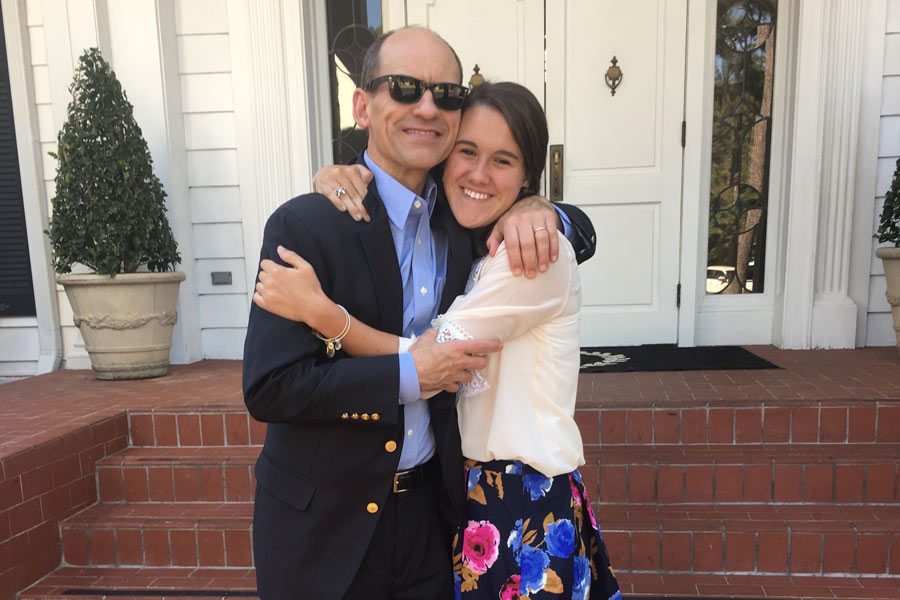










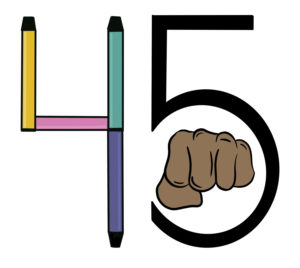

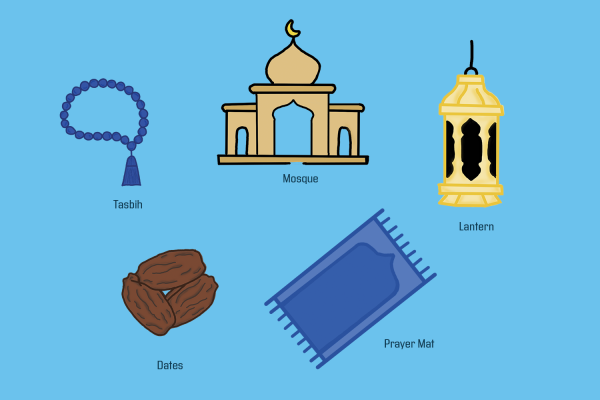
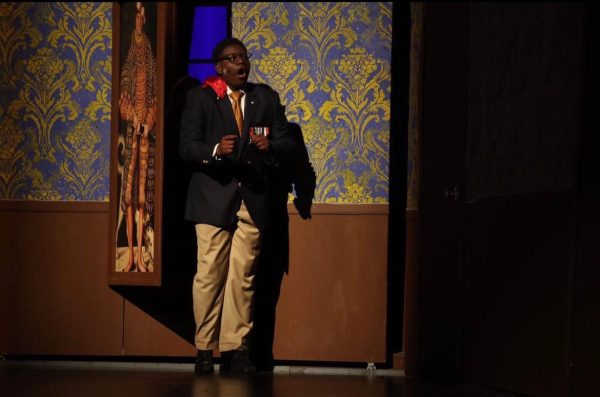
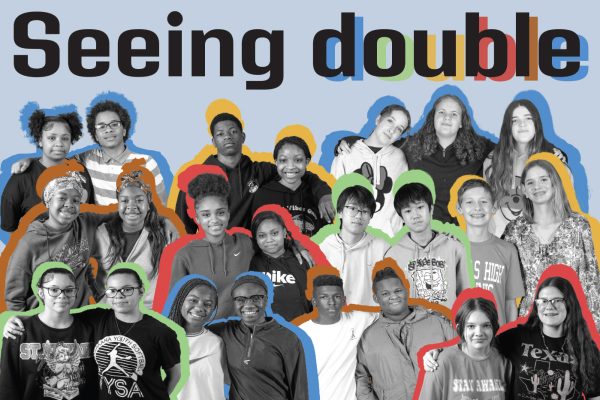
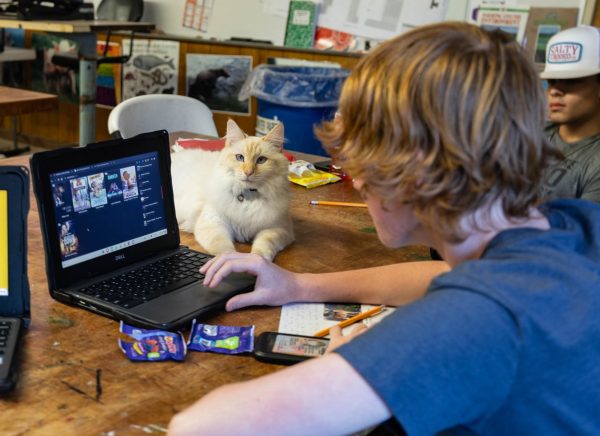
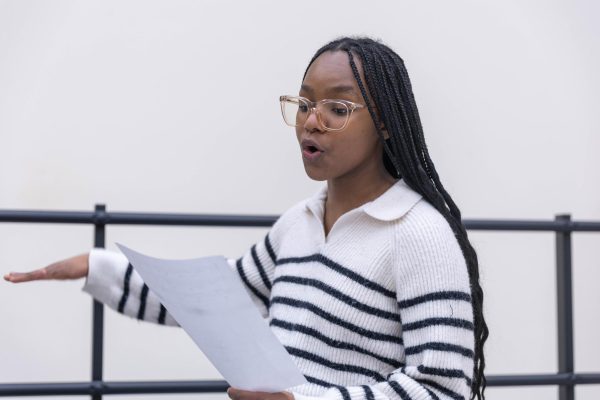

Mary Kaye • Sep 12, 2017 at 9:30 am
Very eloquently written Eleanor and I’m so glad your family chose to share their story.
Jim Rule • Sep 15, 2016 at 2:16 pm
A deeply very moving story well told. So glad it had a “happy” ending.
Fran mitchell • Sep 11, 2016 at 11:50 pm
Eleanor, thank you so much for your story. I will never forget this event and almost holding my breath until your daddy got home. I so grateful we were blessed to have him return safely!
Sarah • Sep 11, 2016 at 4:16 pm
Beautifully written, Eleanor. Thank you for your remembrance. We had dinner with your dad at our Manhattan apartment on Monday night. It was an early dinner with our children, as he had to be up before dawn to catch his flight back to Texarkana. I was in Central Park when the planes hit, and as I made my way out of the park I stopped into the lobby of the Hotel Wales to ask if your dad had left. I was worried that he was in the air that morning. As I walked into the hotel, I could look south and see the smoke rising from the Twin Towers. The hotel sits on upper Madison Avenue, at the top of a hill, so you could see quite far into the distance. The clerk told me that he had checked out early that morning. As I left the hotel, I looked again to the south but the building with the plumes of smoke was no longer visible. The deli man on the corner was standing outside his shop, facing in in the direction of the missing structure. He had tears streaming down his face. “The building fell down.”